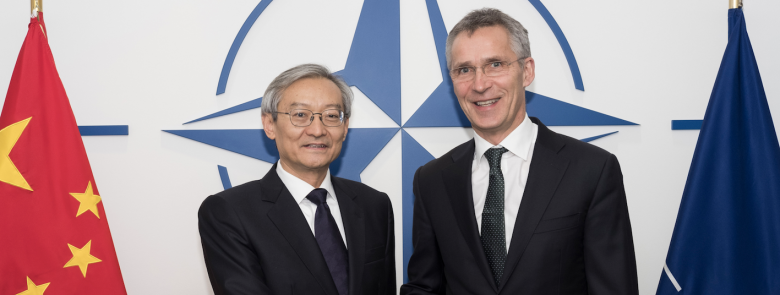NATO's biggest threat is not China; It hides inside

BRUSSELS – NATO remains the most powerful military alliance, but in terms of its core political values it has never been so vulnerable. Discussions about increasing the military budget or responding to the ambitions of other powers will be in vain if the members of the alliance do not rediscover what they are supposed to defend, or, as the North Atlantic Treaty makes it clear: “the freedom, common heritage and civilisation of their peoples, founded on the principles of democracy, individual liberty and the rule of law.” Hard military defences required this soft and delicate core of Western society to be preserved first.
After all, it will be difficult to justify to citizens that the alliance must be preserved, that they must make financial sacrifices to modernize armed forces, and that vital economic infrastructure needs to be guarded, if that same citizen does not know what it means to live in a dictatorship or has come to doubt even about the desirability of democracy. Preparing NATO’s defences against new authoritarian rivals starts in the class rooms, in the echo chambers of social media, and, most of all, in the daily lives of citizens. What does this entail?
In the first place, NATO countries need to acknowledge that democracy, freedom, and dignity remain ideals. They are never finished and require permanent effort. In the last decades, NATO countries dragged their heels on that effort and this has to be reversed. Civic education must be given priority. History education, crucial to understand the vice of authoritarianism, must be reinvigorated. Civic empowerment is a democracy’s ultimate bastion, against internal fragmenting and external competitors. It is often said that China and Russia aim at compromising the functioning of our democracy. NATO countries must stop giving them an easy time and fight the tide of cynicism, intolerance and racism at home.
But it is not enough to know about the value of democracy. Democracy must also perform better. It is not normal that three decades of relative prosperity and peace among most NATO countries has remained so disappointing for tens of millions of citizens in terms of purchasing power, dignified work, and social cohesion. Just after the collapse of the Soviet Union, intellectuals like Paul Kennedy and Francis Fukuyama warned that a democracy cannot be preserved on utilitarianism and capitalism alone. That warning has only become more urgent. Society and economy must transform from a voracious machine of consumerism into an industrious studio in which beauty, sustainability, dignity and honour are central, a bottega in which the ordinary and the great can be expressed positively.
Many NATO member states seem to feel what this requires: building an inclusive society around core ideals. It needs to be clear again what it means to be a citizen. But that also entails that those citizens can channel their labour, imagination and wealth into activities that bolster a society of democracy, freedom, dignity – and sustainability. This is what article two in the North Atlantic Treaty is about: “promoting conditions of stability and well-being”. To stop the military advance of competitors, NATO countries must stop allowing them to turn dictatorship into a competitive advantage.
This is not evident. NATO countries depend heavily on authoritarian suppliers of consumer goods and fuel. They allow competitors to run large trade surpluses which their state capitalist system often turns into a weapon against Western companies. Many European countries still turn a blind eye to such economic power politics. Some have lost trust in the United States and fear that Trumpianism is still very much alive. Better thus, they assume, to tread carefully, and to compete with authoritarian states without getting too explicit about the disconnect in terms of values.
This posture is flawed. Cautious economic, diplomatic and military competition cannot work if the internal tissue of values is not restored. Diplomats might like to think about the world as a giant play of chess. Still, it entails that you first create the desire to play and to stay focussed. There must be skin in the game, but many countries do not event want to be part of the game. And even if we factor in that no partnership in international politics is rock-solid, upping the game against common authoritarian competitors remains first and foremost a matter of preserving national power and guarding the legitimacy of this most delicate project called democracy. How credible is it for a minister of foreign affairs to show support for Ukraine by visiting its Eastern border of Ukraine in a bullet proof vest, when Belgium’s energy sector is enriching Russia financially?
Published in EU Observer. Also read my longer essay in The Washington Quarterly on this topic.
